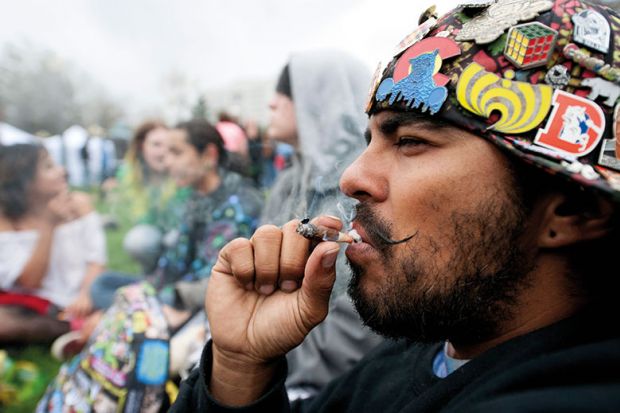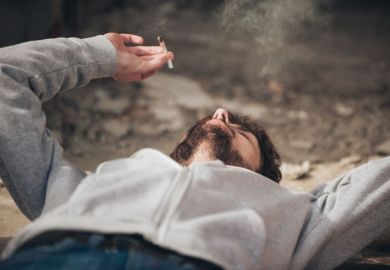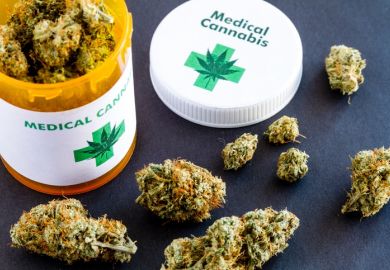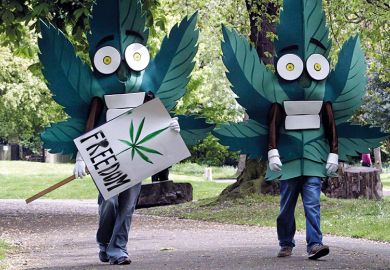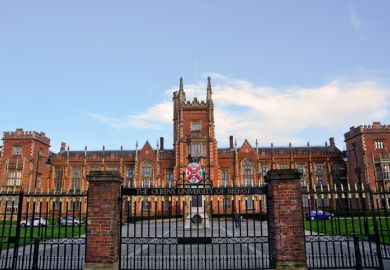University students in US states that have legalised the use of marijuana for medical reasons spend around 20 per cent less time on their studies than their peers in states where it is still banned, according to a study.
Thirty-one US states have so far allowed medical use of cannabis, including nine that also allow recreational use, while Canada will legalise the drug next month. But the new study, by researchers at American University in Washington and Victoria University of Wellington, highlights the impact this could be having on academic achievement.
For the latest study, published in the Economics of Education Review, Yu-Wei Luke Chu, senior lecturer in economics at Victoria, and Seth Gershenson, an associate professor of public administration and policy at American, drew on data from the American Time Use Survey, an annual government questionnaire that asks people how much time they spend on various daily activities.
They found that university students in states that permitted medical marijuana spent about 20 per cent more time on leisure activities and 20 per cent less time on education-related activities than their peers in other states. This is equivalent to a reduction in study time of around 25 minutes every day.
Although it was not a subject of their analysis, their data also showed an additional 7 per cent decrease in education-related activities in states that fully legalised marijuana use.
Similar to the findings of a smaller study conducted in the Netherlands, the US data found the negative academic effects to be most pronounced among struggling and part-time students for whom lost time on education-related activities is even more costly.
The Dutch study found a significant academic improvement by foreign students at Maastricht University after the city outlawed the sale of marijuana to foreigners.
Dr Chu and Dr Gershenson said their findings were another warning for colleges to pay even closer attention to students in affected regions. That could mean offering additional counselling, or perhaps something as simple as issuing “text-based nudges that remind students of the value of studying”, Dr Gershenson said.
Jesse Cougle, an associate professor of psychology at Florida State University, said that while US college leaders have long recognised the links between poor academic performance and marijuana use, they may not fully appreciate these connections and understand ways to answer defenders of the drug as legalisation spreads.
Dr Cougle’s work has helped demonstrate connections between marijuana use and very high rates of interpersonal problems and personality disorders. Research data indicate that such problems are much worse than with alcohol, even though marijuana enjoys a popular reputation for being less risky to overall health and less tied to violence, Dr Cougle said.
Colleges could respond, he said, with informational campaigns that help people more clearly and accurately recognise the mental health and academic performance risks of marijuana use.
Register to continue
Why register?
- Registration is free and only takes a moment
- Once registered, you can read 3 articles a month
- Sign up for our newsletter
Subscribe
Or subscribe for unlimited access to:
- Unlimited access to news, views, insights & reviews
- Digital editions
- Digital access to THE’s university and college rankings analysis
Already registered or a current subscriber?
